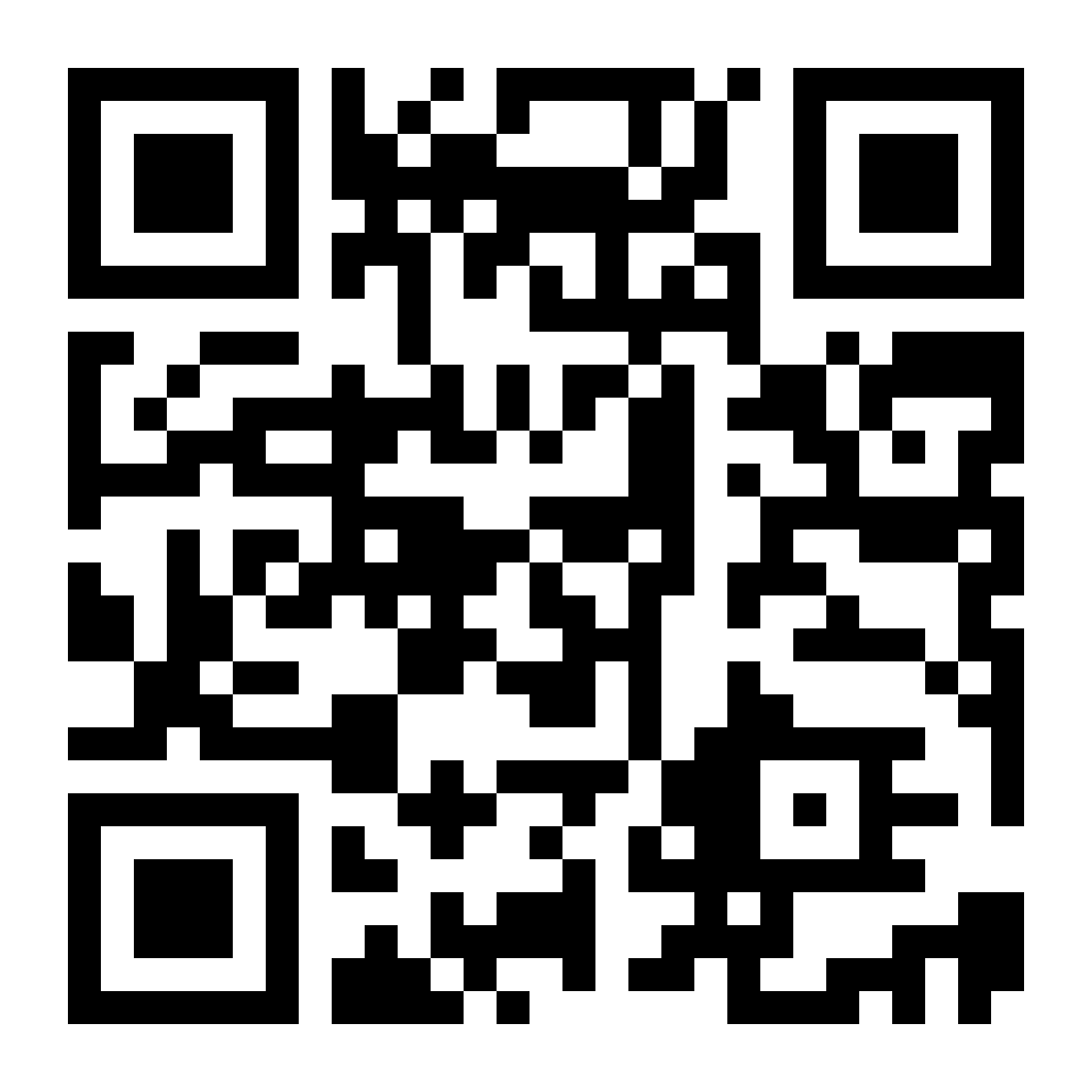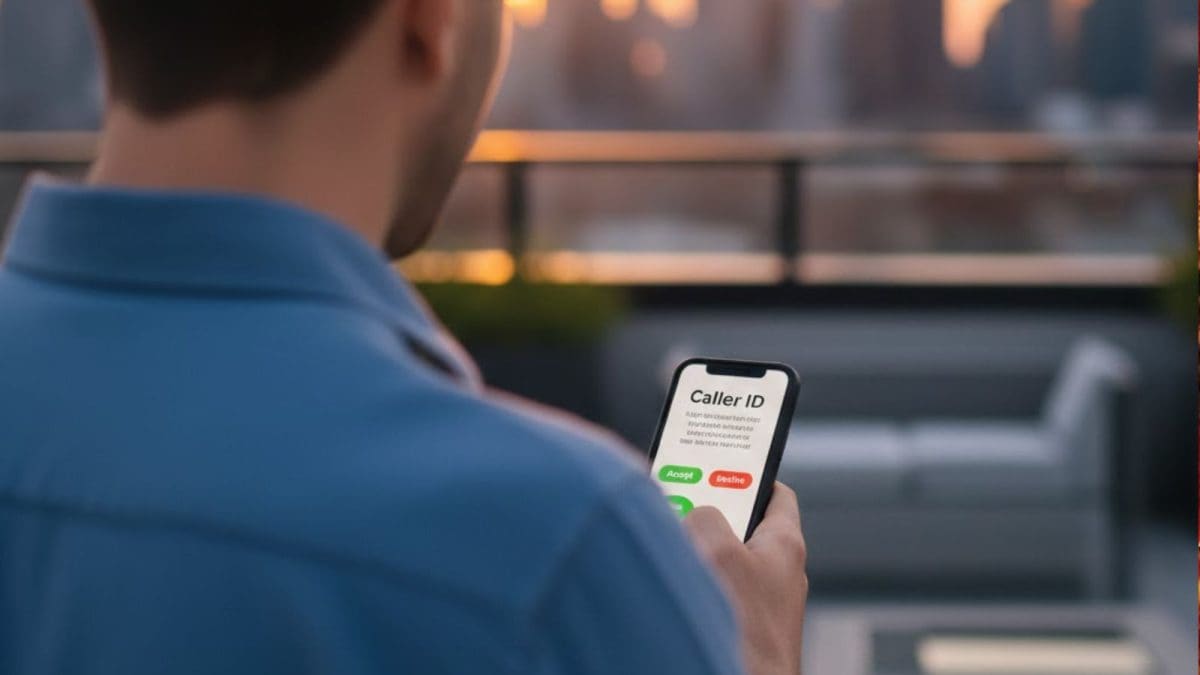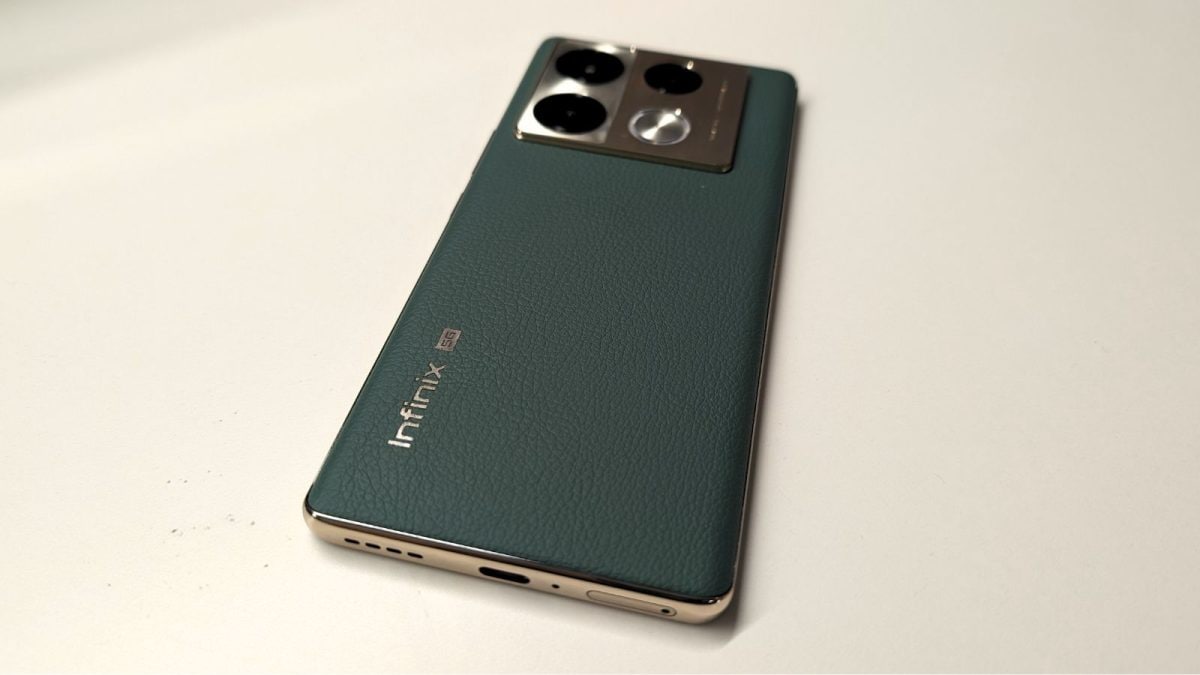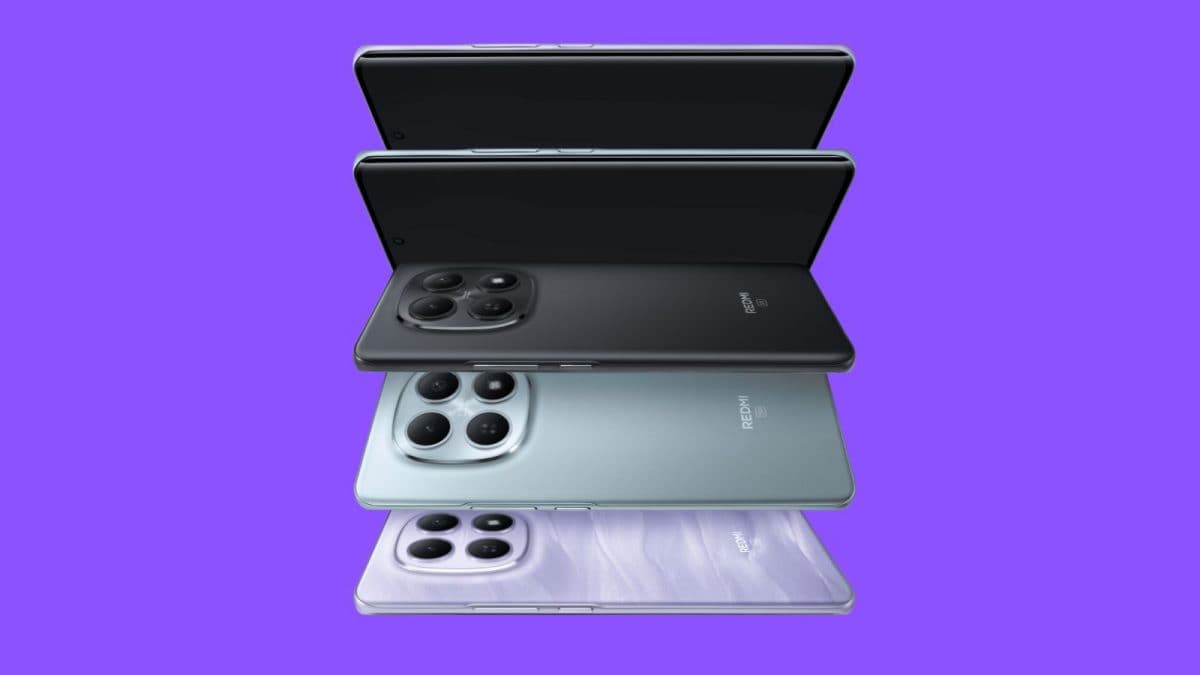Last Updated:November 28, 2025, 11:37 IST
When a notification appears, the brain releases a burst of anticipation. Even without it, users check phones, which divides focus and train the brain to expect constant stimulation

One of the most surprising findings from cognitive research in recent years is that the mere presence of a smartphone, near you or even in your bag, can reduce available cognitive capacity. (Getty Images)
If you have reached for your mobile phone even once while reading this article, you have already proved the central finding of the latest research by a UK university.
A joint study by Nottingham Trent University in the United Kingdom and Keimyung University in South Korea has established a direct statistical link between the number of times a person unlocks their smartphone each day and measurable declines in sustained attention, working memory, and the ability to learn new material. The threshold is chillingly precise: Cross 100-110 unlocks a day, and the damage becomes statistically significant. If you check your phone 150 times a day, the deterioration accelerates sharply.
Over the last decade, smartphones have transformed from communication devices to constant digital companions. They wake people up, remind them to drink water, navigate traffic, track calories, deliver breaking news, and offer endless entertainment. But while smartphones make life more convenient, growing concern now centres around a quieter, more subtle issue: how they may be affecting human attention, memory, and the ability to think deeply.
The question is no longer whether smartphones are changing our lives, but whether they are also changing human minds, and at what cost.
The Brain Is Wired For Distraction
Human brains are evolutionarily designed to scan for threats, rewards, and opportunities. A buzzing notification, a flashing screen, or a “ping" from a message acts as a modern stimulus, similar to how the brain once reacted to sudden sounds in the wild.
Each time a notification appears, the brain releases a burst of anticipation and reward. Even without a notification, many users automatically check their phones, known as ‘checking behaviour’, just to see if something new has happened. These repetitive interruptions divide regular attention into fragmented episodes, training the brain to expect constant stimulation rather than focus for extended periods.
When this pattern repeats dozens or hundreds of times a day, the brain may gradually adapt to preferring short, shallow bursts of attention over sustained focus.
“The phones and digital media are reinforcing for our brains, activating the same reward pathway as drugs and alcohol. The phones create a compulsive habit loop where we check without thinking and experience withdrawal when we don’t check or don’t have access to our phone," said Anna Lembke, a professor of psychiatry and addiction medicine at Stanford University School of Medicine, as quoted in a Washington Post report.
When Your Phone Thinks For You
One of the most surprising findings from cognitive research in recent years is that the mere presence of a smartphone, near you or even in your bag, can reduce available cognitive capacity.
This does not mean people become permanently less intelligent. Instead, the brain gently allocates resources towards monitoring the phone, even without conscious attention. It is like having a small window open in the brain, always waiting for the smartphone to demand attention.
What suffers most is “brain bandwidth"—the ability to think, reason, and remember information in the moment. People may feel mentally present but are unknowingly working at less than full cognitive potential. This becomes especially noticeable during tasks that need deep concentration, such as studying, reading, problem-solving, or planning.
Notifications, Dopamine, And Digital Dependency
Every time a notification appears, the brain experiences a tiny reward response. Even simple actions such as checking for new messages, scrolling feeds, or refreshing apps can trigger small surges of dopamine.
Over time, this reward loop subtly reshapes behaviour. People begin to reach for their phones not because something happened, but because it might have happened. The uncertainty itself becomes addictive. This mechanism is the same one used in slot machines and casino games, known as “variable reward."
The brain slowly learns to prefer quick hits of stimulation over slow, uninterrupted thinking. This makes activities like reading a book, writing, studying, or listening deeply to someone feel less engaging than brief phone usage, even though they may be more meaningful.
So, What Happens To Focus, Memory, And Learning?
Researchers studying heavy smartphone use have consistently observed three key cognitive effects:
Reduced sustained attention: People become more prone to distraction and find it harder to stay engaged with a single activity for long. Multi-tasking, especially involving phones, feels easy, but it typically lowers overall productivity and mental clarity.
Weakened Working Memory: Working memory is the brain’s system for holding and processing information. It is essential for solving problems, learning new concepts, and making decisions. Frequent interruptions from phones force the brain to repeatedly refresh working memory, resulting in poorer recall and understanding.
Difficulty With Deep Thinking: High-level cognitive tasks such as planning, analysing, and critical reasoning require uninterrupted time. When thinking is repeatedly broken into fragments by phone interactions, the brain cannot form strong conceptual connections. This weakens understanding and creativity.
None of these effects is permanent. But if smartphone use continues to be intense and unbroken, the brain may gradually become accustomed to shallow processing over deep thinking.
Is India At Higher Risk?
India did not create the smartphone problem, but it may be living through its most dramatic version. Today, nearly 85% Indian households own a smartphone, and around 86% families have access to the Internet, per the Comprehensive Modular Survey: Telecom, 2025.
Several factors make the country uniquely vulnerable:
Extremely cheap mobile data has made video streaming and constant messaging nearly universal.Long commutes in metro cities create hours of idle time filled with casual scrolling.Education pressure pushes students to keep phones nearby “for learning," but often leads to distraction.High social dependence on WhatsApp and family groups keeps notifications active 24/7.Food delivery, transport, and gig work platforms make it difficult to put phones away, even briefly.In urban families, smartphones have become alarm clocks, diaries, wallets, and entertainment centres. The dependency is infrastructural, not just emotional.How Does Phone Use Impact Students And Professionals?
The impact of constant phone use is no longer limited to theory or psychology labs.
In schools and colleges, teachers increasingly report that students struggle to read long passages, concentrate during exams, or remember key concepts. Many students keep phones next to them during study hours, even when offline, often slowing their focus and efficiency.
According to a report by the Annual Status of Education Report (ASER), 82.2% of all children in the 14-16 age group know how to use a smartphone. Of these, 57% reported using it for an educational activity, while 76% said that they had used it for social media.
In workplaces, managers notice that employees frequently switch between tasks, check messages during meetings, and find it difficult to maintain uninterrupted attention on complex assignments. Multitasking feels productive, but it often reduces work quality.
In daily life, people report forgetting what they were searching for as soon as they pick up the phone. Many people experience mental fatigue, difficulty falling asleep, or a constant need for background stimulation.
Do Smartphones Cause ADHD-like Symptoms?
While smartphones do not cause ADHD (Attention-Deficit Hyperactivity Disorder), there is growing concern that excessive use can create ADHD-like behaviours even in people without any underlying disorder. These include restlessness, irritability during boredom, difficulty reading for long stretches, and compulsive checking.
However, experts agree that such symptoms are environmental, not neurodevelopmental. They are created by behaviour, and therefore, are reversible.
Is Recovery Possible?
Unlike addiction to chemicals or substances, digital dependency rarely causes permanent brain damage. The brain retains its plasticity—the ability to rewire, heal, and rebuild attention capacity.
Most people begin to notice improvements in focus, sleep, and mental clarity when they implement phone boundaries for even two to three weeks.
Some research-backed strategies include:
Phone out of sight: Keeping the phone in a different room during work or study improves focus far more than just putting it on silent mode.
Turning off non-essential notifications: This reduces attention interruptions and prevents the “phantom vibration" effect.
Charging phone outside the bedroom: Helps restore normal sleep cycles and reduces the urge to scroll late at night or immediately after waking up.
Creating phone-free zones: Dining tables, study desks, and places of worship are good starting points.
Replacing scrolling with reading: Keeping a physical book or notebook accessible makes it more likely to engage the mind in deep thinking during idle moments.
Time-batching checks: Checking messages only at fixed times, such as morning, afternoon, and evening, can help break compulsive checking.
These methods don’t eliminate smartphones. They help people regain control over how and when they use them.
The Real Test You Can Try
Anyone can try a simple test. Open the phone’s settings and check how many times it was unlocked yesterday. If the number is above 100, that may be a sign that the phone is not just a tool; it is actively shaping behaviour. Even more important is how often it interrupts important tasks like studying, reading, or thinking.
The goal is not to minimise unlocks, but to regain intention: using the phone when necessary, and not simply when bored.
Thus, the biggest winners of the future, whether students preparing for exams, professionals aiming for leadership, or creators building new ideas, will not be those with the fastest internet connections or most notifications. They will be the ones who still possess something increasingly rare: the ability to think deeply, stay focused, and hold uninterrupted attention.
Smartphones offer tremendous power. The challenge is to use that power without sacrificing the very mental strengths that make humans unique: memory, focus, reasoning, and imagination.
In the end, it is not about rejecting technology, but mastering it. The device is not the problem. The problem begins when it quietly takes control of our minds.
Shilpy Bisht, Deputy News Editor at News18, writes and edits national, world and business stories. She started off as a print journalist, and then transitioned to online, in her 12 years of experience. Her prev...Read More
Shilpy Bisht, Deputy News Editor at News18, writes and edits national, world and business stories. She started off as a print journalist, and then transitioned to online, in her 12 years of experience. Her prev...
Read More
First Published:
November 28, 2025, 11:37 IST
News explainers How Constant Phone Checking May Be Damaging Your Brain And How To Break The Habit
Disclaimer: Comments reflect users’ views, not News18’s. Please keep discussions respectful and constructive. Abusive, defamatory, or illegal comments will be removed. News18 may disable any comment at its discretion. By posting, you agree to our Terms of Use and Privacy Policy.
Stay Ahead, Read Faster
Scan the QR code to download the News18 app and enjoy a seamless news experience anytime, anywhere.


 1 month ago
1 month ago


















